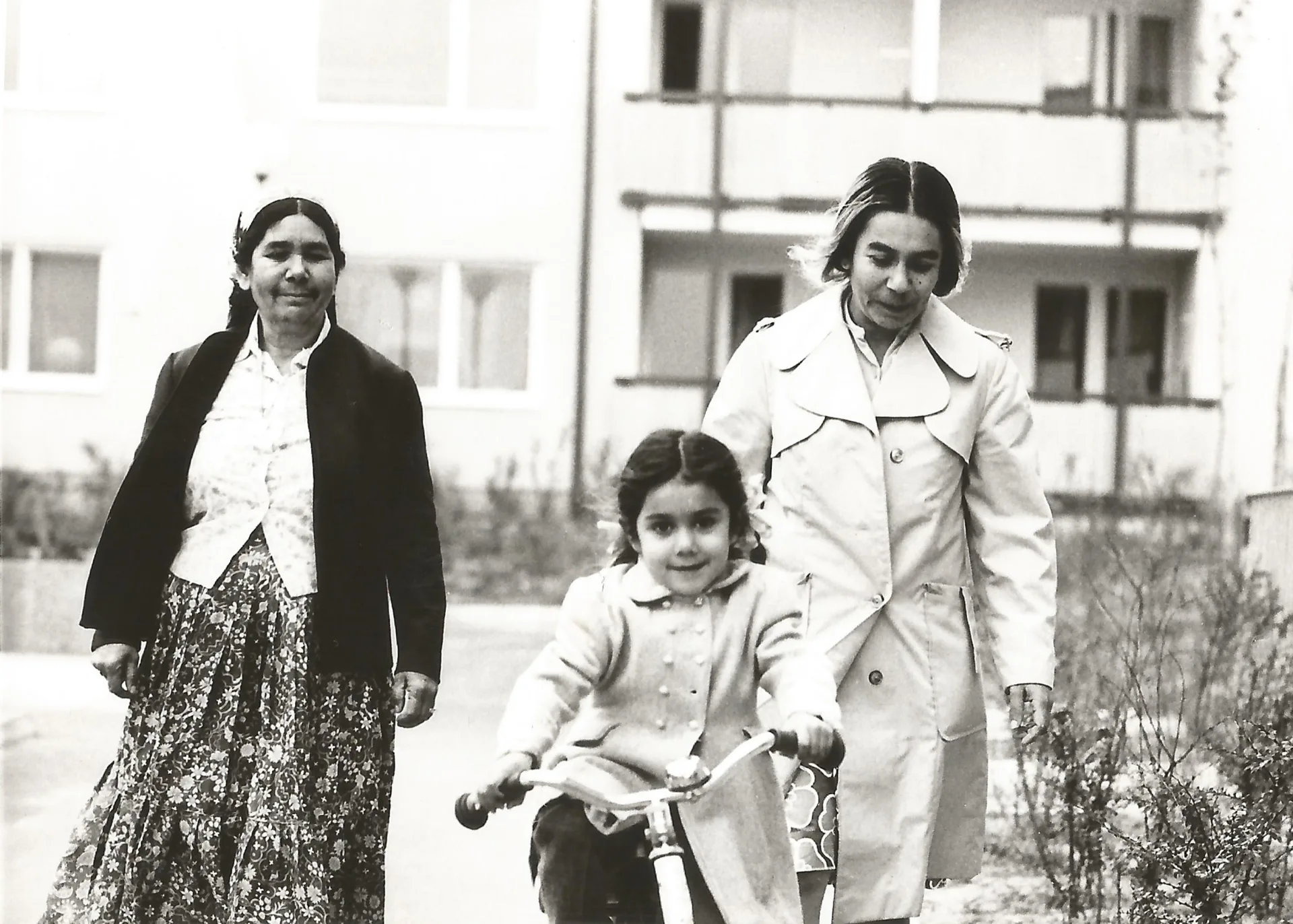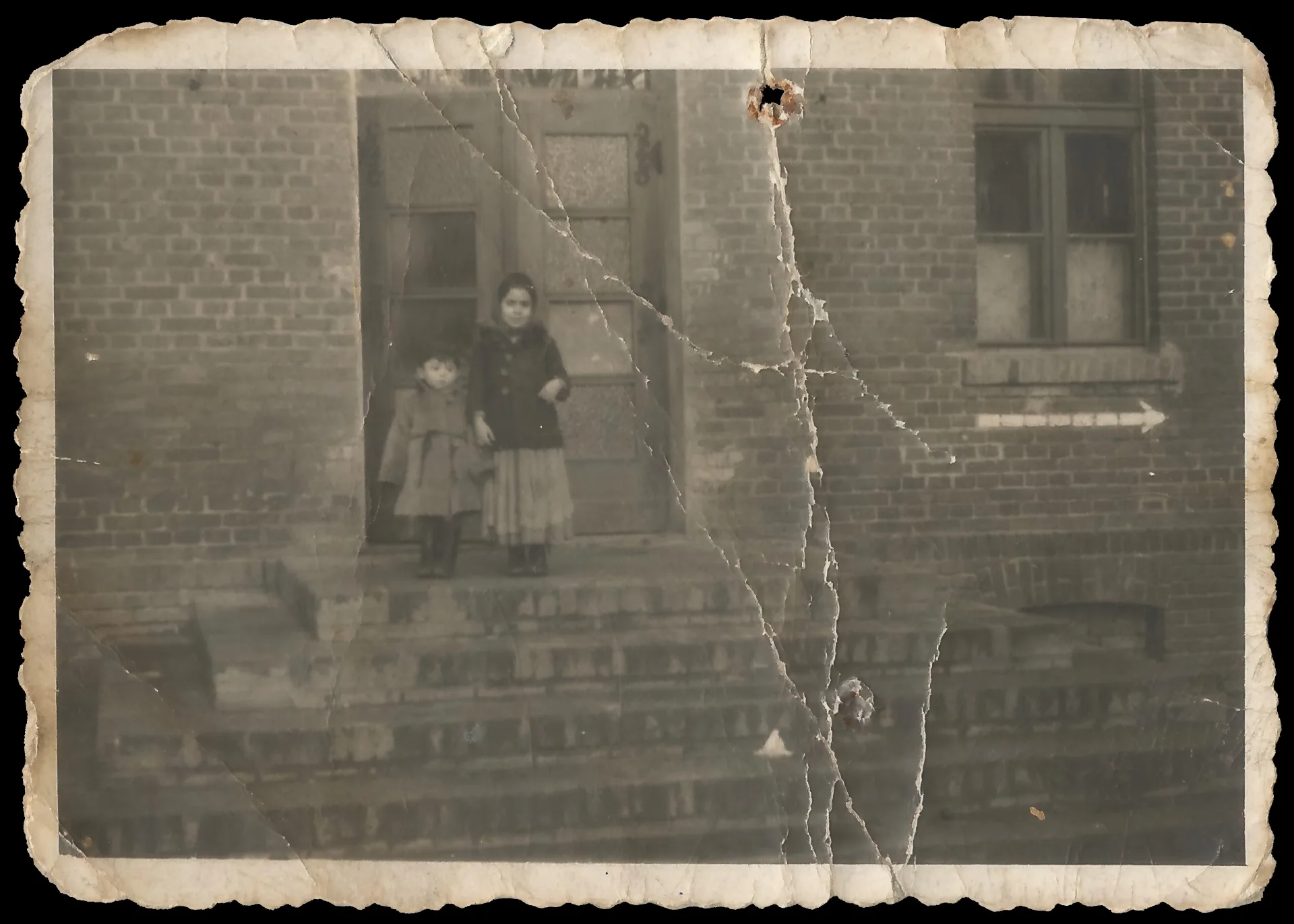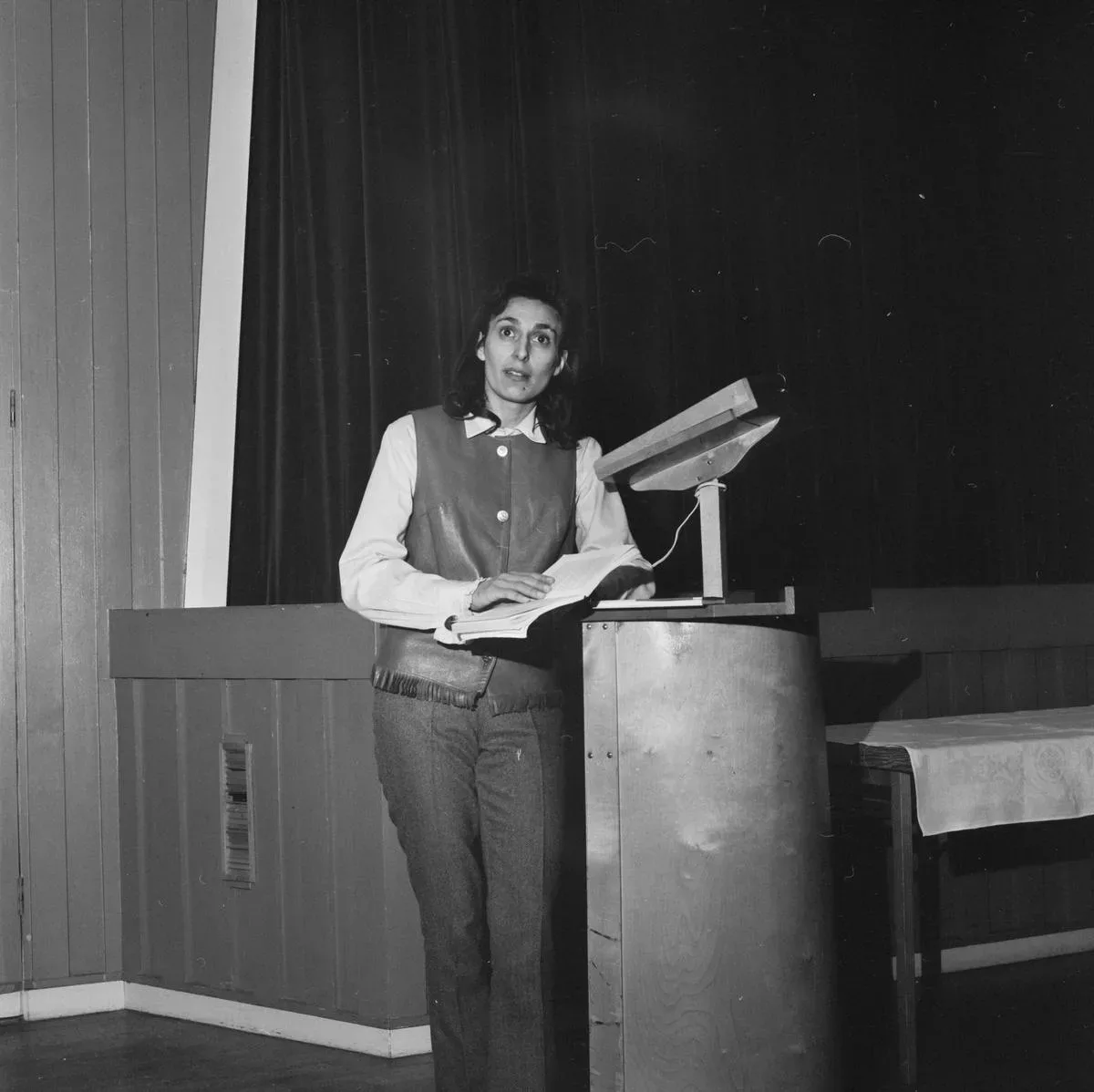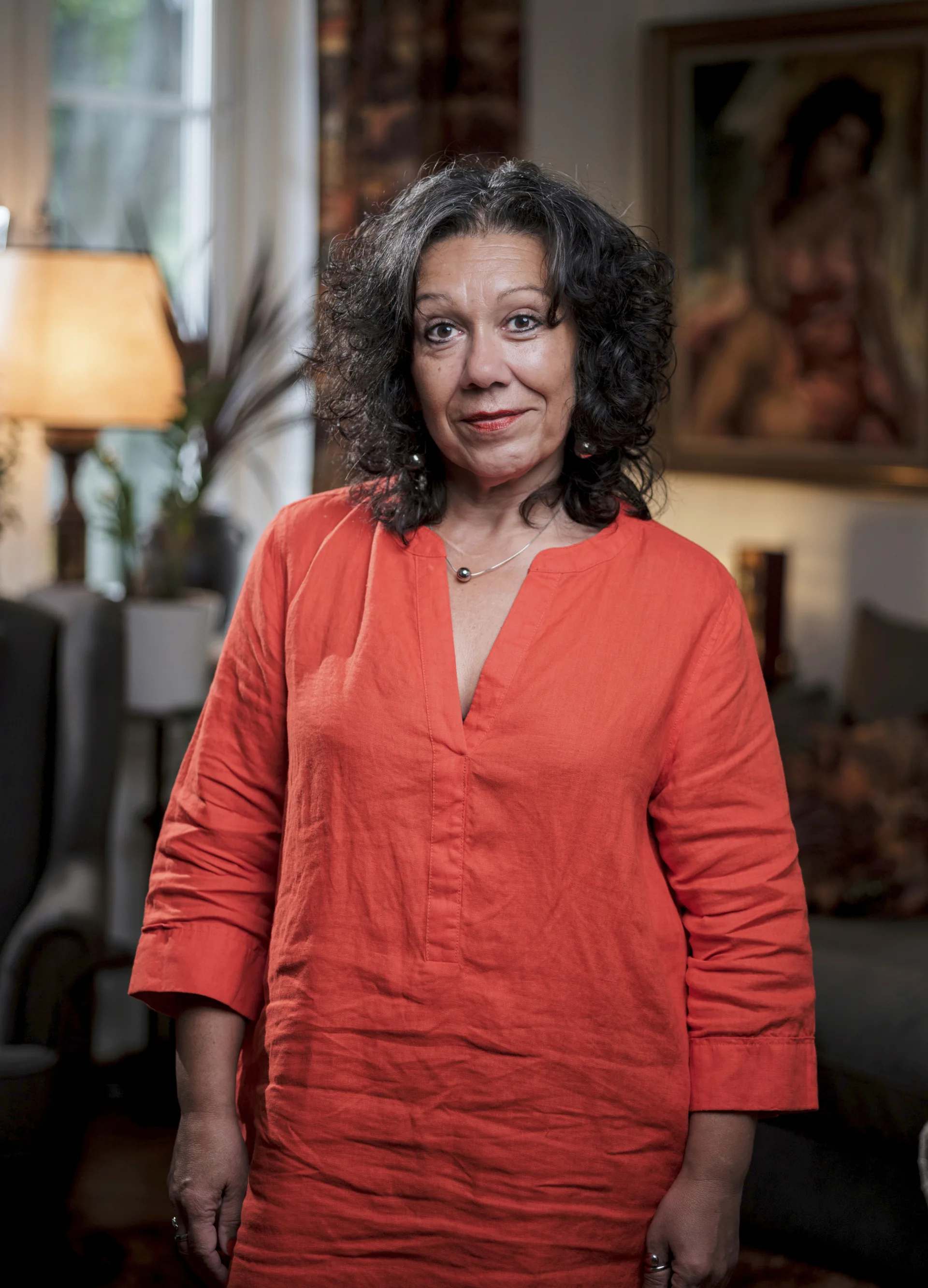Lenka

Before the War
Lenka is around twenty years old when she, her mother Worza, and her siblings move to Poland in the late 1920s to live with her aunt Zofi. Lenka grew up in Mexico, where the family had lived for a few decades, and has roots in the Romani groups Lovara and Kelderasha. A resourceful person, Lenka speaks six languages in addition to Romani. She earns a living by sewing clothes and reading palms, among other things.
Lenka marries Patzo, and their daughter Pavla is born in 1938. Five years later, their son Fardi is born. During the early years of the war, the family keeps moving to avoid the conflict. For a time, they live in the Warsaw Ghetto. The family also works for various farmers, receiving food and shelter as payment, often staying in barns and outhouses.

The War is Coming
One day, German soldiers arrive at the farm where Lenka and her family are working. The Romani men, who are out in the fields, don’t have time to hide. They are lined up against a wall and shot. A male relative, who had managed to disguise himself with a wide-brimmed hat, cannot bear to watch what is happening. He removes his hat and says, “You’ve killed my entire family, so you might as well shoot me too.” Hidden in a barn, the women and children witness the execution. Afterward, they are forced to continue their flight.
In late 1944, while Lenka and her family are traveling by train to a wedding in a nearby village, the conductor suddenly tells them to lie down and not get off at the station. Somehow, the conductor has learned that soldiers have arrived at the wedding celebration. They have shot the bride and groom along with hundreds of wedding guests who were already there. Thanks to the conductor’s warning, Lenka and the children narrowly escape once again.
The Flight to Sweden
In 1968, Pavla has a daughter, Jeanette, who is born in the city of Łódź. The situation in Poland feels increasingly unsafe, and the family senses they cannot thrive there. They have heard of a woman in Sweden, Katarina Taikon, who has begun working to create better opportunities for Romani people. When Jeanette is three years old, the family decides to flee. They first travel to what was then Yugoslavia and stay at a refugee camp in Trieste. The family is granted refugee status and arrives in Flen, Sweden.

After a few months at the refugee camp in Flen, the family is given their own apartment in Västerås. Jeanette recalls how her grandmother stood by the light switch, turning it on and off, and how delighted she was to drink water straight from the tap.
Pavla, Lenka and Jeanette
Lenka and Pavla didn’t speak openly about their experiences during the war; instead, their stories emerged as fragments or were told like fairy tales. Jeanette’s path to adulthood was marked by her determination to make her own choices rather than following the family’s decisions. At the age of 14, Jeanette ran away and lost contact with both her mother and grandmother.
When Jeanette had her first child, she began reconnecting with Pavla. By the time her second child was born in 1988, Jeanette was secretly in touch with both Pavla and Lenka. Pavla even helped Jeanette purchase a condominium in the same neighborhood. When her grandmother passed away in 1992, Jeanette decided to break all norms by going to the hospital to say goodbye. From that moment on, she was accepted by her family.
